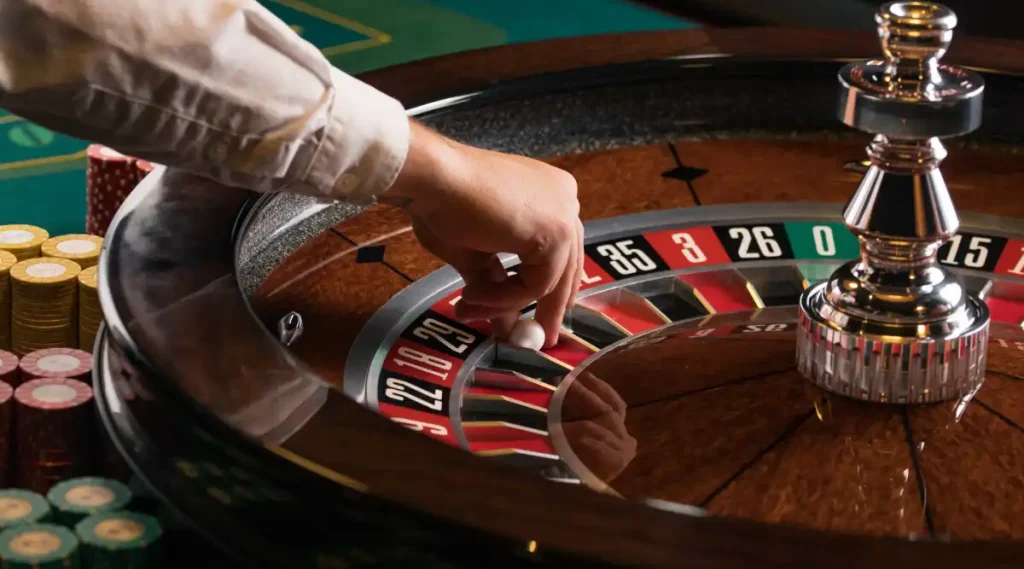The spin of the wheel. The clatter of the ivory ball. The collective gasp of anticipation. Roulette is more than just a game of chance—it’s a cultural artifact. Its journey from European salons to global online platforms tells a story about us. About our relationship with fate, fortune, and the thrill of the unknown. Let’s dive into how this iconic game has been woven into the very fabric of societies across the world.
Europe: The Aristocratic Birthplace
Roulette, as we know it, was born in 18th-century France. The name itself is French for “little wheel.” And honestly, its early days were steeped in European aristocracy. Picture it: opulent Parisian gambling houses, men in tailcoats, women in lavish gowns, all gathered around the wheel. It wasn’t just a pastime; it was a social event, a display of status and sophistication.
The game’s very design reflects its European origins. The single zero wheel, known as French Roulette, became the standard. It represented a certain elegance, a lower house edge that appealed to a more strategic, patient player. In a way, the European version of the game is a metaphor for the continent’s old-world charm—a slower, more deliberate dance with destiny.
America: The Land of Double Chance
When roulette crossed the Atlantic, it underwent a transformation. This is where we see a culture literally change the game. American casino operators, looking to increase their profits and appeal to a different sensibility, introduced the double zero. The American Roulette wheel was born.
This wasn’t just a rule change; it was a cultural statement. The higher house edge created a faster, more volatile game. It mirrored the American spirit—bigger, bolder, and with a “go big or go home” attitude. As gambling moved west with the frontier, roulette tables became staples in the raucous saloons of New Orleans and the mining boomtowns. It was no longer just for aristocrats; it was for everyone chasing a dream, however fleeting.
Russia: A Game of Fatalism and Literature
Now, here’s where it gets really interesting. In Russia, roulette took on a deeply philosophical, almost dark significance. It wasn’t merely a casino game; it was a literary device and a symbol of fatalism. Fyodor Dostoevsky, a man who knew a thing or two about gambling, famously used it in his novel “The Gambler.”
The protagonist’s obsession with roulette mirrors Dostoevsky’s own. The game became a powerful metaphor for the human condition under Tsarist rule—a combination of passion, despair, and the belief that life itself is a spin of the wheel, utterly subject to capricious fate. This cultural significance of roulette in Russian society is less about glamour and more about a deep, almost existential embrace of chance.
Asia: Modern Adoption and Symbolism
Macau and the VIP Culture
In Asian cultures, particularly in the gambling mecca of Macau, roulette has been adopted with a distinct flavor. While games like Baccarat and Sic Bo dominate, roulette holds its own, often catering to high-rolling VIP players. The cultural significance here is tied to wealth, prosperity, and status. The act of placing large bets on a single number isn’t just gambling; it’s a display of power and a belief in one’s own luck—a concept deeply rooted in many Asian philosophies.
Numbers and Superstition
You can’t talk about Asia without touching on numerology. The numbers on the wheel carry immense weight. For instance, the number 8 is considered extremely lucky in Chinese culture, symbolizing wealth and prosperity. Conversely, the number 4 is avoided as it sounds like the word for “death.” This cultural lens transforms the roulette table from a grid of random numbers into a map of auspicious and inauspicious symbols. Players will often cluster their bets around their lucky numbers, layering a deeply personal, cultural ritual onto the game’s mechanics.
Roulette in Popular Culture: The Silver Screen Spin
Beyond specific regions, roulette has cemented its place in global pop culture. It’s a director’s shortcut for tension, sophistication, or recklessness. Who can forget the iconic scene in Casablanca? Or James Bond, coolly confident, at the table? These moments solidify the game’s imagery in our collective consciousness. It represents a pivotal moment of decision, a gamble that could define a character’s arc. It’s the ultimate cinematic metaphor for risk.
The Digital Age: A Globalized Ritual
Today, the cultural significance of roulette is evolving yet again with the rise of online casinos and live dealer games. The physical, communal table is now a virtual experience accessible to anyone, anywhere. This has democratized the game, stripping away some of its regional exclusivity but also creating a new, global culture of players.
Yet, the core human fascination remains. We’re still drawn to that wheel. We still project our hopes, our superstitions, and our dreams onto its spinning numbers. The context changes—a Monte Carlo casino, a Vegas strip, a smartphone screen—but the essential thrill is timeless. It turns out the most significant thing about roulette isn’t the rules of the game, but the people who play it and the meanings they assign to it.
In the end, the roulette wheel is a mirror. It reflects our deepest attitudes toward chance, fortune, and the future. Whether seen as a noble pastime, a reckless vice, a philosophical puzzle, or a simple bit of fun, its spin continues to captivate us. A timeless dance between luck and choice.












More Stories
The application of data analytics and tracking software for personal roulette play
Roulette Etiquette in Different Casino Environments: A Player’s Guide
Mathematical Analysis of Roulette Wheel Biases: The Cracks in the Perfect Machine